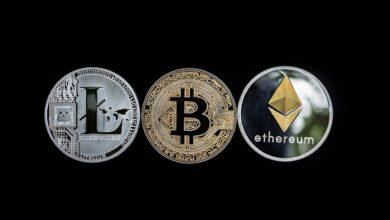Navigating Crypto Exchanges – Essential Investor Insights

In the ever-evolving landscape of digital assets, selecting the right cryptocurrency exchange is not merely an act of convenience; it is a critical decision that can significantly influence an investor’s success. The plethora of platforms available today may appear daunting, yet understanding key considerations can illuminate the path to making informed choices. For investors, this is not just a matter of picking a platform; it is about selecting a trustworthy partner in their financial journey.
Each exchange operates within its unique ecosystem, characterized by various features, fees, security measures, and liquidity levels. As such, gaining essential insights into these elements becomes paramount. Investors must navigate through a labyrinth of options, evaluating the nuances of each platform to ascertain which one aligns best with their investment strategy and risk tolerance. This process demands attention to detail and an analytical mindset, as even minor oversights can lead to significant repercussions in the volatile world of cryptocurrencies.
Furthermore, understanding the landscape of digital asset exchanges means recognizing that not all platforms are created equal. Some may boast user-friendly interfaces but lack robust security protocols, while others may offer extensive trading options at the expense of high fees. In this context, critical information becomes invaluable. By carefully weighing these factors, investors can cultivate a nuanced understanding of what constitutes a reliable crypto exchange and thus fortify their positions within this dynamic market.
Ultimately, choosing a cryptocurrency exchange transcends mere preference; it embodies strategic thinking and foresight. Investors equipped with the right knowledge will not only enhance their trading experience but also safeguard their investments in an arena where uncertainty reigns supreme. As we delve deeper into this topic, let us explore the vital aspects that every investor should consider when embarking on the journey of picking a crypto platform.
What to Look for in Exchanges: Key Considerations for Investors When Picking a Crypto Platform
In the rapidly evolving world of cryptocurrency, selecting an appropriate exchange is paramount for any investor seeking to navigate the complexities of digital assets. The sheer volume of platforms available can be overwhelming, yet understanding the key considerations can significantly streamline the decision-making process. One must recognize that not all exchanges are created equal; therefore, a discerning investor should approach this task with a critical mindset, focusing on essential insights that can lead to informed choices.
One of the foremost factors to consider when choosing a cryptocurrency exchange is security. The digital nature of these platforms makes them attractive targets for malicious actors. Investors should meticulously evaluate the security measures implemented by each platform, such as two-factor authentication, cold storage for assets, and insurance policies against hacks. For instance, exchanges like Coinbase have garnered trust partly due to their robust security frameworks. In contrast, those with a history of breaches may pose significant risks to investors’ assets.
Liquidity is another vital aspect that should influence one’s selection of an exchange. Higher liquidity often translates to better price stability and lower slippage during trades. Investors need to examine trading volumes and order book depth on various platforms to ensure they can execute trades efficiently without facing excessive costs. Platforms like Binance consistently showcase high trading volumes across numerous pairs, making them advantageous for investors who prioritize liquid markets.
The user interface and overall experience offered by an exchange also warrant careful consideration. A well-designed platform enhances usability, allowing investors to navigate seamlessly through trading pairs and account settings. Moreover, customer support is critical; should issues arise, timely assistance can mitigate potential losses or frustrations. An example of a user-friendly exchange is Kraken, which balances complexity and functionality while providing comprehensive support channels.
Fees associated with trading should not be overlooked either. Platforms typically impose various charges, including trading fees, withdrawal fees, and deposit fees. A thorough examination of these costs can reveal hidden implications on profitability. Investors should compare fee structures across multiple exchanges; for example, while some platforms may advertise low trading fees, they might compensate by increasing withdrawal fees significantly.
Lastly, regulatory compliance and reputation play pivotal roles in determining the credibility of a cryptocurrency exchange. Investors must verify whether a platform adheres to local regulations and possesses the necessary licenses to operate legally. Additionally, researching user reviews and industry rankings can provide valuable insights into the platform’s reliability and trustworthiness. Exchanges such as Gemini pride themselves on regulatory compliance and transparency, setting them apart in an industry often shadowed by uncertainty.
In conclusion, selecting the right cryptocurrency exchange involves a multifaceted evaluation process that extends beyond mere convenience or promotional offers. By focusing on security measures, liquidity levels, user experience, fee structures, and regulatory compliance, investors can significantly enhance their chances of making sound decisions that protect their digital assets while enabling successful trading activities in this dynamic market landscape.
Security Features of Crypto Exchanges: Key Considerations for Investors
In the evolving landscape of cryptocurrency, the selection of a digital asset exchange is not merely a matter of convenience; it embodies a complex interplay of security features that every investor must consider. When choosing a crypto platform, one must delve into the myriad of security protocols in place to safeguard assets. From two-factor authentication (2FA) to cold storage solutions, these mechanisms provide essential layers of protection against the ever-present threat of cyberattacks. A critical piece of information for potential investors is understanding that not all exchanges are created equal, and those with robust security measures often distinguish themselves in an otherwise chaotic market.
One key consideration when selecting a cryptocurrency exchange is the exchange’s history and reputation regarding security breaches. Investors should conduct thorough research to uncover any past incidents that may reveal vulnerabilities in the exchange’s infrastructure. For example, high-profile hacks have resulted in significant losses for users on platforms that lacked adequate security protocols. This highlights the necessity for investors to prioritize exchanges with transparent histories and established track records, reinforcing the importance of security as a non-negotiable criterion when picking a trading platform.
Moreover, essential insights can be gleaned from examining the regulatory compliance of an exchange. Platforms operating under stringent regulations often implement higher security standards and practices. Investors should seek out exchanges that comply with local laws and international regulations, as these entities are generally more accountable and responsive to security concerns. Regulatory oversight can serve as a form of assurance for investors, suggesting that the platform values both user protection and transparency.
Another critical aspect to consider is the technological infrastructure supporting the exchange. A solid platform should employ state-of-the-art encryption methods to protect user data and transactions. Additionally, real-time monitoring systems can detect anomalies and respond swiftly to potential threats. Investors should look for exchanges that openly share information about their technological frameworks, as this transparency can indicate a commitment to securing digital assets against evolving threats.
Investors must also contemplate the liquidity offered by an exchange when selecting where to make their trades. High liquidity not only facilitates smoother transactions but also indicates a healthy trading environment. Platforms with sufficient liquidity are typically better equipped to handle sudden market fluctuations without compromising on security measures or execution speed. Thus, assessing liquidity should be considered alongside security features as part of a holistic approach to choosing an exchange.
In conclusion, when embarking on the journey of cryptocurrency investment, understanding the multifaceted nature of security features is paramount. By prioritizing exchanges that showcase robust security protocols, regulatory compliance, advanced technology, and sufficient liquidity, investors can significantly mitigate risks associated with trading digital assets. The pursuit of critical information regarding these factors will empower investors to make informed decisions and navigate the complex world of cryptocurrency with greater confidence and assurance.
Trading Fees and Cost Structures: Critical Information for Choosing a Digital Asset Exchange
Understanding trading fees and cost structures is paramount for any investor navigating the complex landscape of cryptocurrency exchanges. The variety of fee models–ranging from flat fees to percentage-based structures–can significantly impact the profitability of trades. For instance, some platforms may boast low trading fees but impose hidden costs through withdrawal fees or deposit charges. Investors must meticulously dissect these components when selecting an exchange, as even minor discrepancies in fees can erode returns over time.
When picking a crypto platform, it is essential to recognize the importance of transparency in fee disclosures. Exchanges that clearly outline their fee structures enable investors to make informed decisions based on their trading habits. For example, an investor who engages in high-frequency trading may benefit from a platform with lower transaction fees, while a casual trader might prioritize a user-friendly interface and robust customer support over minimal fees. This critical insight into the diverse needs of investors underscores the necessity of comprehensive research when choosing a digital asset exchange.
Moreover, security features and regulatory compliance should not be overlooked when assessing an exchange’s cost structure. Platforms with strong security measures may charge slightly higher fees but offer peace of mind that can be invaluable in the volatile crypto market. Investors should inquire about insurance policies, two-factor authentication, and cold storage practices as part of their evaluation process. By understanding these key elements, investors can better align their risk tolerance with their choice of cryptocurrency exchange.
Finally, it is imperative for investors to remain vigilant and adaptable in their approach to selecting a cryptocurrency exchange. The rapidly evolving nature of the digital asset landscape means that what may have been an optimal choice yesterday might not hold true tomorrow. Keeping abreast of market trends, emerging exchanges, and shifting fee structures will empower investors to make choices that are not only informed but also strategically advantageous in optimizing their cryptocurrency portfolios.
Essential Insights for Selecting a Cryptocurrency Exchange
In the tumultuous seas of digital assets, where fluctuations can be as unpredictable as the tides, the choice of a cryptocurrency exchange stands as a lighthouse guiding investors through the fog. It is crucial for any crypto investor to understand that the user experience and interface are not merely aesthetic components; they are foundational elements that can impact trading efficiency and overall satisfaction. The platform you select serves as your gateway to this vibrant ecosystem, making it imperative to approach the selection process with diligence and insight.
When picking a crypto exchange, investors must consider several factors that transcend surface-level features. Critical information about security protocols, transaction fees, supported assets, and customer support should be at the forefront of your evaluation. A robust understanding of these considerations will not only enhance your trading experience but also fortify your investment strategy against potential pitfalls.
Key Considerations for Investors
- User Experience: A seamless interface can significantly reduce the cognitive load on investors, enabling them to make informed decisions swiftly.
- Security Features: Prioritize exchanges that implement stringent security measures, such as two-factor authentication and cold storage for assets.
- Transaction Fees: Be aware of the fee structures involved in trading, as these costs can erode profits over time.
- Asset Variety: Select platforms that offer a diverse range of cryptocurrencies to diversify your portfolio effectively.
- Customer Support: Reliable support services are essential for resolving issues promptly when they arise.
In conclusion, choosing the right cryptocurrency exchange is a multifaceted endeavor that demands careful consideration. For investors navigating this complex landscape, embracing these essential insights can lead to informed decisions that enhance both profitability and enjoyment of the digital asset journey. Remember, when selecting a platform, prioritize critical information over mere convenience; in the world of cryptocurrency, knowledge is not just power–it is your shield against uncertainty.





